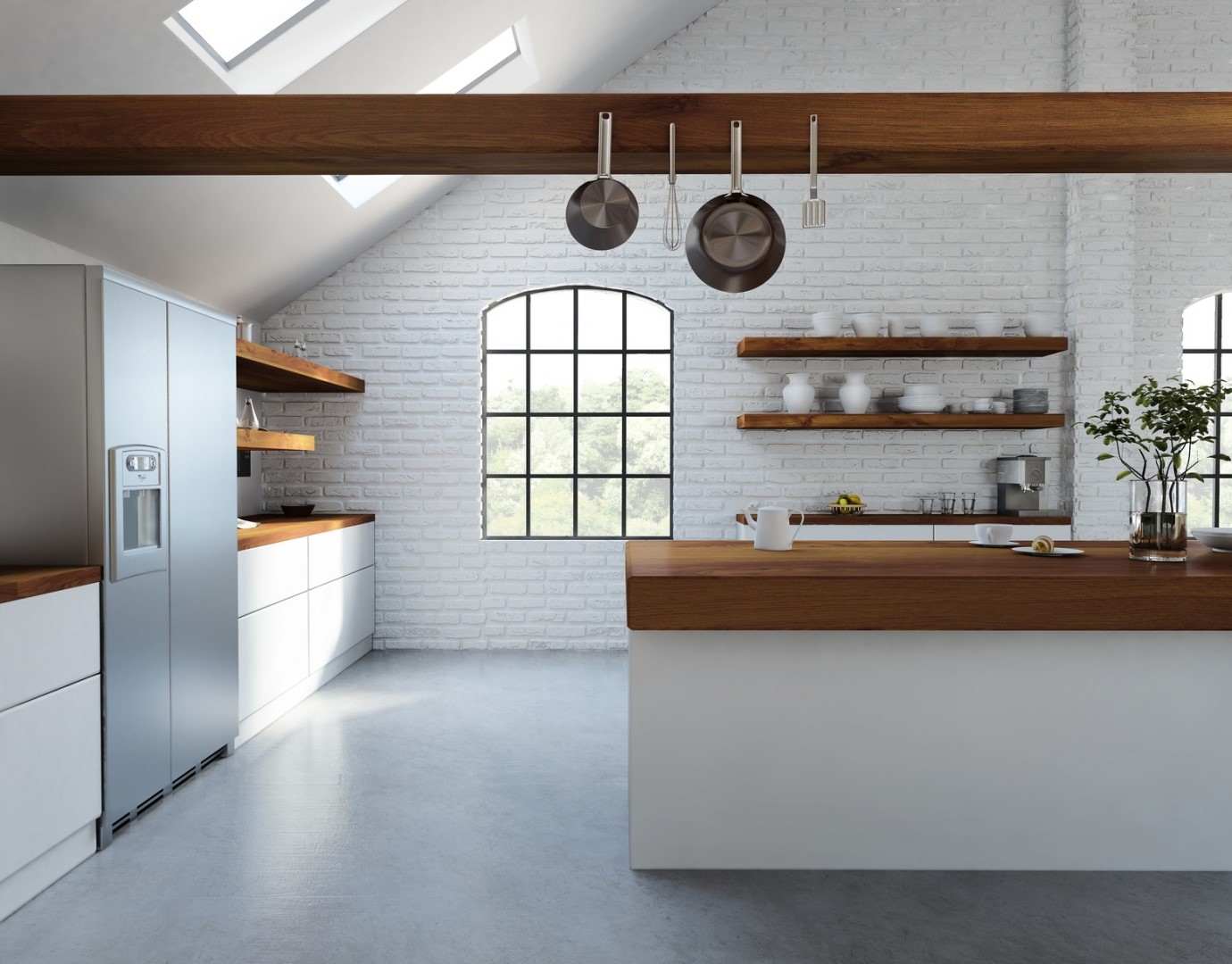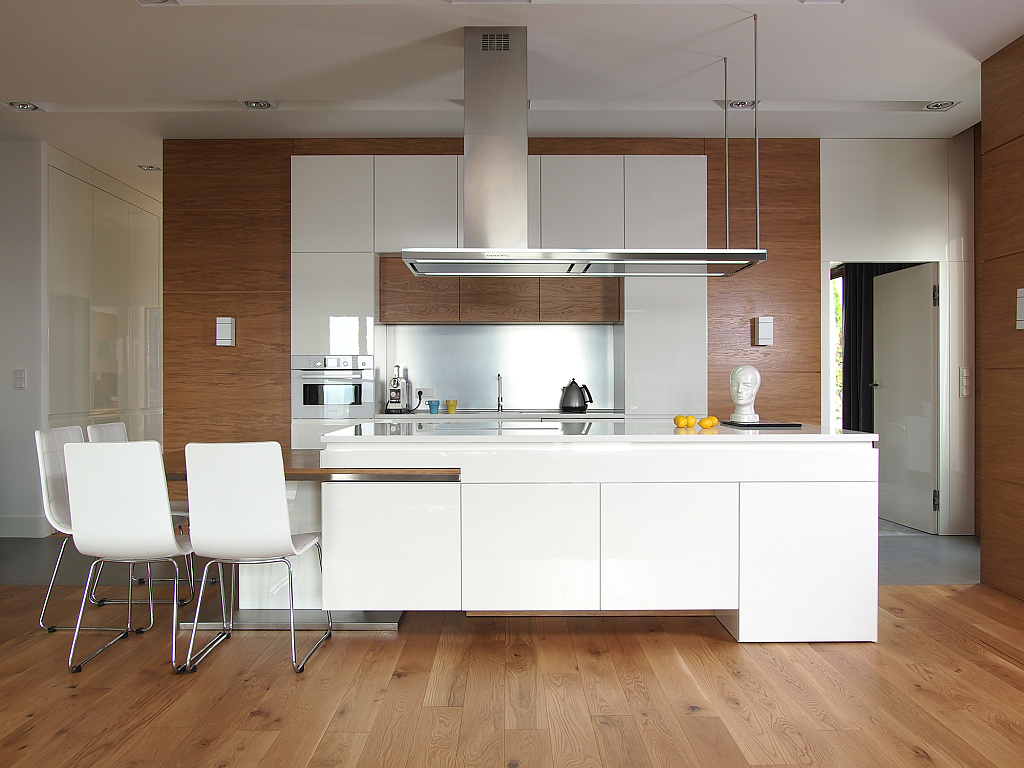If you’re looking for a way to make your home a more sustainable place, the kitchen is a great place to start. At Modernize, we appreciate the desire to create a beautiful home while maintaining a sustainable and environmentally friendly lifestyle. Here are some of the top trends in eco-friendly countertops and flooring to help you with your own sustainable home remodeling projects.
Countertops
- Recycled marble
Recycled marble, or cultured or engineered marble as it is sometimes known, is made from natural stone that has been crushed and reformed with heat and resin. Buying pre-cut slabs of recycled marble for countertops will save money as well as the environment, as bespoke sizes and molds are still an expensive option for kitchen workspaces.
- Bamboo
If you are looking for a visually appealing alternative for your countertop, bamboo offers a design aesthetic that is difficult to replicate. Choose from a variety of cuts and styles sourced from mature, sustainably harvested Chinese bamboo shoots and give your kitchen an unique design style.
- Recycled glass
Although recycled glass is not new in terms of eco-friendly tiling options, it remains one of the most common and interesting sources of sustainable countertops today. Choose from larger, established brands, or endeavor to make your own recycled glass countertop with old bottles and a cement binder.
- PaperStone
PaperStone is made from 100% post-consumer paper waste, which is compressed and covered in resin. Choose from a variety of pigments to suit your personal taste and rest easy knowing that your countertop is made from a Rainforest Alliance certified product.
- Recycled HDPE
Also coming from 100% post-consumer waste, recycled HDPE (high density polyethylene) countertops are made from recycled landfill plastic (think milk bottles). Already popular in commercial settings, recycled HDPE surfaces would make the perfect addition to any residential kitchen.
- Recycled wood
Using reclaimed and recycled wood throughout the house is a particularly trendy eco-friendly option, as the rustic industrial look surpasses modern minimalism in popularity. Source, renew, and stain your own wood planks for a DIY project that will leave you pleased with not only the results but also your environmental awareness.
Flooring
- Bamboo
In addition to being a popular countertop material, bamboo is also an excellent environmentally friendly flooring option. This material ranks high on both durability and sustainability scales and can be purchased in a variety of finishes and styles.
- Marmoleum
Marmoleum is a branded linoleum flooring product made from 97% natural raw materials, including linseed oil, wood flour, and jute. Choose from a wide variety of colors, patterns, and styles to satisfy all your linoleum-based desires with none of the environmental cost.
- Cork
Cork flooring is an eco-friendly alternative to traditional wooden flooring and is often chosen because of its acoustic insulation and durability. Cork planks can be ordered to size and come from the bark of a Cork Oak tree, which can regrow its bark within three years and does not need to be cut down in order to harvest its materials.
- Reclaimed wood
If you’re looking for a larger DIY project and have a large supply of reclaimed wood, a recycled wooden floor is the way to go. Satisfying both environmental and trendy needs, this kind of wooden floor won’t break the bank or cut down any more trees.
- Sustainable carpeting
For carpeted rooms, choose options with renewably sourced and natural fibers such as wool, jute, and organic cotton instead of traditional polyester and nylon carpets. The same goes for area rugs, so choose your materials wisely by decreasing your carbon footprint and increasing the air quality in your home.
Floor Restoration
The most environmentally friendly way to create a beautiful floor space is, of course, to restore your existing flooring. For both soft and hardwood floors, choose from a variety of solvent free, zero VOC oils and topcoats with waterborne finishes to make your wooden floors look like new. Oil and ceramic fortified finishes chemically bond to the wood and increase the adhesion, strength, and scratch resistance of the floor coating. Resilient floors can also be easily restored using ceramic fortified floor sealers, UV light machines, and polyurethane finishes. By restoring your floors instead of replacing them, you save unnecessary landfill waste and recycle flooring materials rather than consuming new ones.



Very informative article! Thank you for sharing.